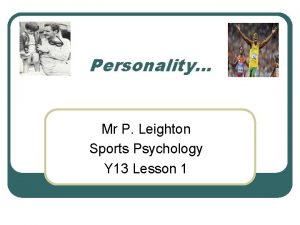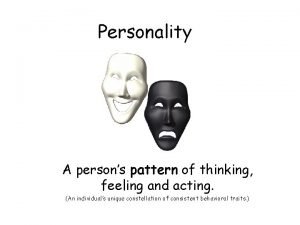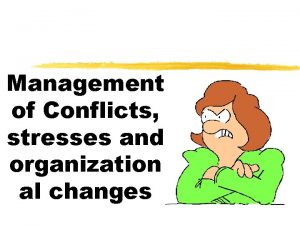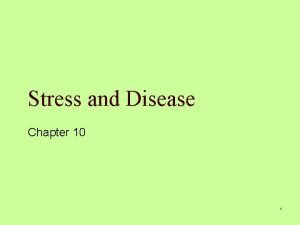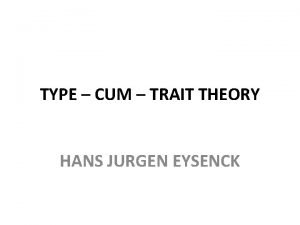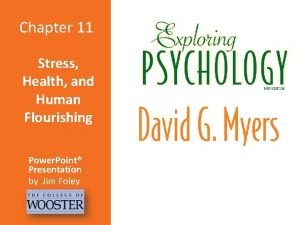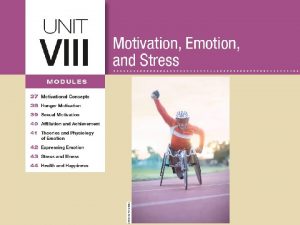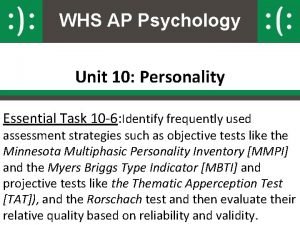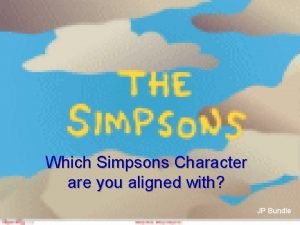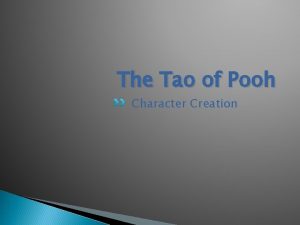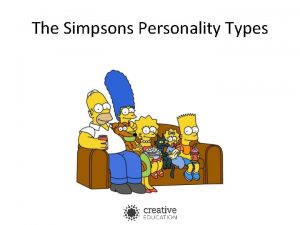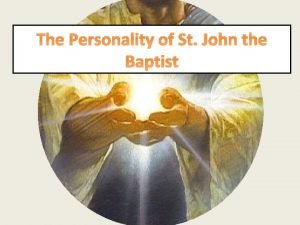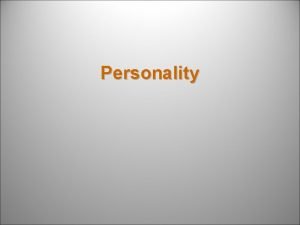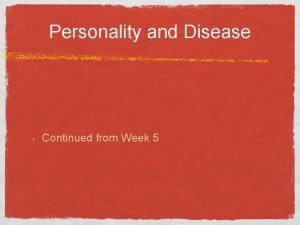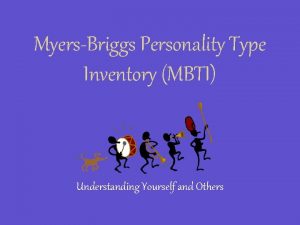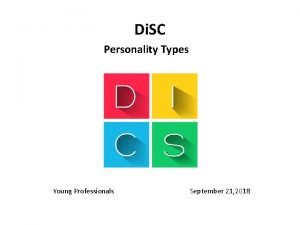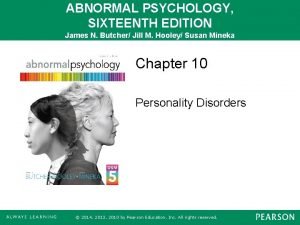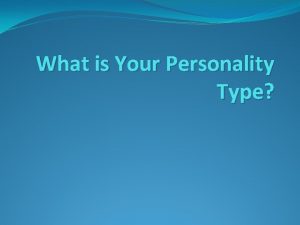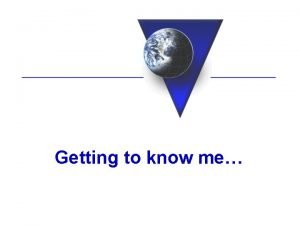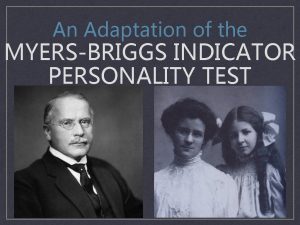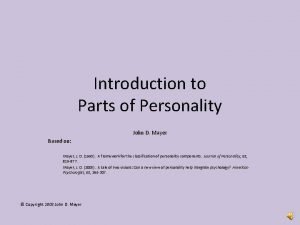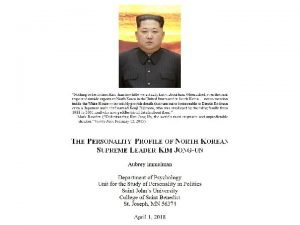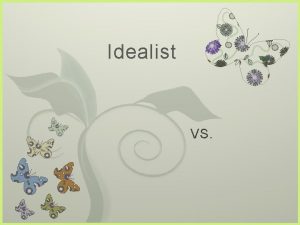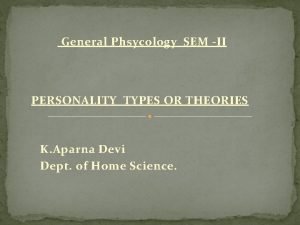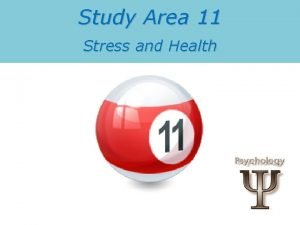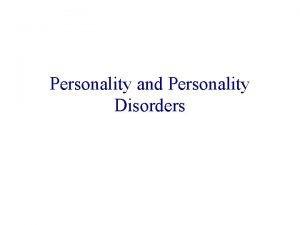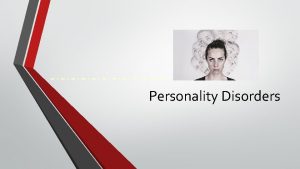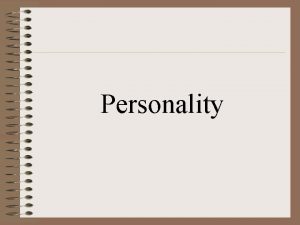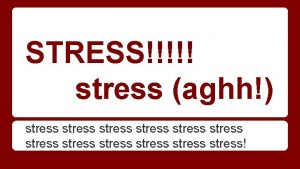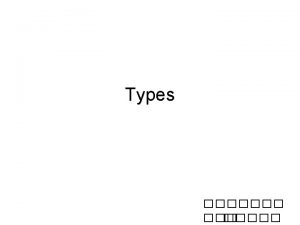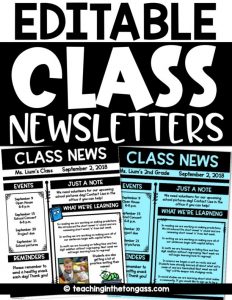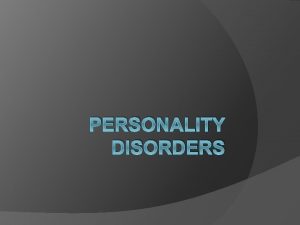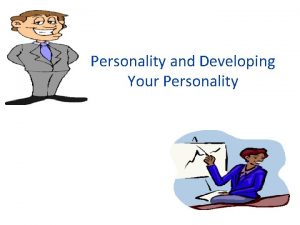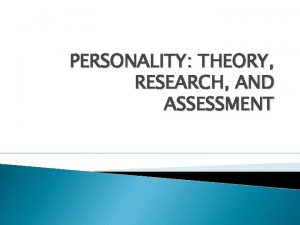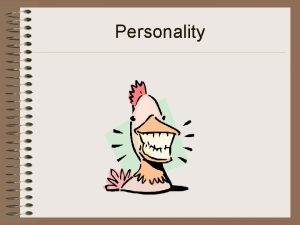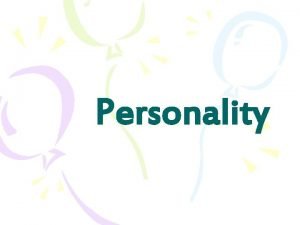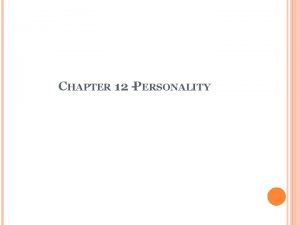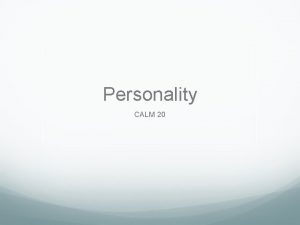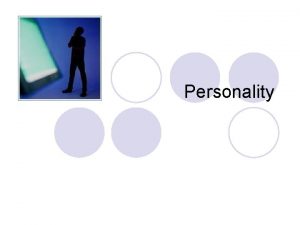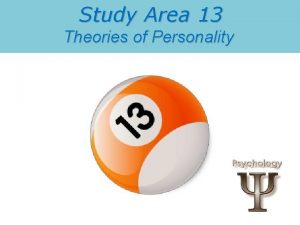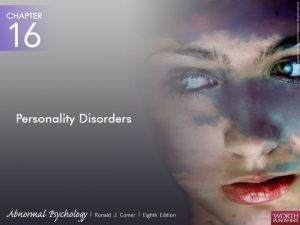Stress and Health Stress and Personality Type A




























- Slides: 28

Stress and Health

Stress and Personality Type A Type B Feel time pressure. Relaxed and easygoing. Easily angered. Competitive and ambitious. But some people fit in neither type. Work hard and play hard. More prone to heart disease than rest of population.

Health Psychology a subfield of psychology that focuses on how stress affects our well being and health

Responding to Stress

Responding to Stress

Responding to Stress

Hans Selye (1907 -1982) program 23; start @ 16: 20 Psychologist who researched recurring responses to stress the he called the general adaptation syndrome (GAS) Discovered various chemicals caused stress reactions in animals

Seyle’s General Adaptation Syndrome Describes our response to a stressful event. Three stages 1. Alarm 2. Resistance 3. Exhaustion

General Adaptation Syndrome Alarm Reaction – nervous system activated in response to stressor Resistance – body responds with physiological reactions to cope with the stressor Exhaustion – body’s resistance to stress is depleted (physical deterioration)

General Adaptation Syndrome

General Adaptation Syndrome

General Adaptation Syndrome

Stress and Conflict Casey comes home from school where she has to decide between doing homework or doing house chores. Name that conflict situation! Juan wants to goes out to eat at a delicious restaurant, but knows it will be expensive. Name that conflict situation! Burt has to decide whether to go to work or go out with friends. Burt knows going to work gives him the chance to make money, but not have an enjoyable time. At the same time, going out with friends allows Burt to have a good time, but he wont have any money in his wallet. Name that conflict situation! Kim must decide where to go on her vacation, the Caribbean or Hawaii. Hmmm What will she decide? Name that conflict situation!

Stress and Disease Humans v. Changes in Housing v. Marital Problems v. School Stress (Testing) v. General Anxiety § Lymphocytes § white blood cells; two types § B lymphocytes - form in the bone marrow and release antibodies that fight bacterial infections § T lymphocytes - form in the thymus and, among other duties, attack cancer cells, viruses, and foreign substances ü

Stress-Cancer Connection Evidence for a connection is not conclusive. Two conclusions: Stress does not create cancer cells. Stress affects the body’s malignancy- fighting ability.

Perceived Control #22 § Health consequences of a loss of control “Executive” rat To shock control “Subordinate” rat To shock source Control rat No connection to shock source

Locus Of Control Internal Locus of Control- believe that you are in control of your own destiny. “I am gaining weight because of my poor diet and exercise habits. I can change and be healthy”. External Locus of Control- believe that others (high power, fate, etc) are in control of your destiny and there is nothing you can do about it. “I am gaining weight because I have a history of obesity in my family and there is nothing I can do about my genetics. Diet and exercise won’t help”.

Martin Seligman (1942 American ) psychologist Proponent of positive psychology Study on Learned Helplessness

Psychological Coping Strategies Cognitive Strategy - a mental technique in which we try to convince our brains to feel something different from what the incoming impulses may say. Cognitive appraisal - interpretation of an event that determines stress impact 1. Denial - deciding that an event isn’t a stressor 2. Intellectualization - watching a situation from a detached standpoint

Relaxation Techniques Progressive relaxation - Reduces muscle tension. People purposely tense a particular muscle group & then relax it. Meditation- Reduces both physical & psychological responses to stress Biofeedback - technique for bringing specific body processes - blood pressure & muscle tension under control.

Other Techniques Religion Exercise Optimistic Outlook Support Groups Improving Interpersonal Skills Training

Exercise and Mental Health

The Faith Factor Explained

The Faith Factor Explained

The Faith Factor Explained

The Faith Factor Explained

The Faith Factor Explained

Optimism The tendency to expect the best Believe bad events are: Temporary Not their fault Will not have broader effects beyond the present circumstances
 Mr. p
Mr. p Type a and type b personality theory
Type a and type b personality theory Personality type b
Personality type b True fracture strain
True fracture strain Chapter 10 stress responses and stress management
Chapter 10 stress responses and stress management Axial normal stress
Axial normal stress Trait theory of personality
Trait theory of personality Stress health and human flourishing
Stress health and human flourishing Module 43 stress and health
Module 43 stress and health Type a personality
Type a personality The simpsons mbti
The simpsons mbti The tao of pooh character analysis
The tao of pooh character analysis Infj simpsons character
Infj simpsons character John the baptist personality type
John the baptist personality type E vs i personality type
E vs i personality type Type c personality
Type c personality Type c personality
Type c personality Blue personality
Blue personality Sc personality
Sc personality Type b personality disorder
Type b personality disorder Director personality type
Director personality type Mbti
Mbti What is personality test
What is personality test Parts of personality
Parts of personality Kim jong-un personality type
Kim jong-un personality type Personailties
Personailties Devi personality type
Devi personality type 3 minute personality test
3 minute personality test Type c personality
Type c personality
